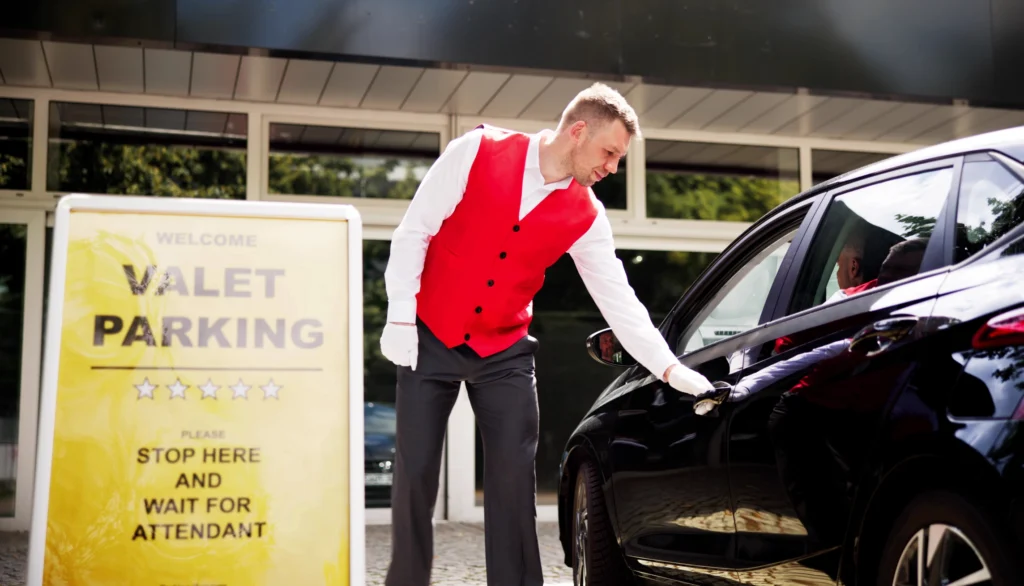As cities evolve and embrace the digital age, so too must the services that support urban life. Among these is valet parking—a service traditionally associated with luxury and convenience. In the UAE, a hub for innovation and modern infrastructure, valet parking is now poised for transformation with the rise of smart parking technologies. From IoT (Internet of Things) sensors to AI-based systems and robotic parking assistants, the future of valet services is smarter, faster, and more efficient.
In this article, we’ll explore how smart parking technologies are revolutionizing
valet services, particularly in a forward-thinking country like the UAE, and how companies like
Adon Valet Parking Services can lead the charge.
What Is Smart Parking?
Smart parking is the integration of technology into parking systems to streamline the vehicle parking process. It typically includes:
- IoT sensors that detect real-time occupancy of parking spaces.
- AI algorithms that guide vehicles or valets to the nearest available slot.
- Mobile applications that let users book, pay, and track their vehicles.
- Automated valet parking systems that park the car without human intervention.
These technologies can be applied to public parking spaces, private lots, or in combination with valet services, enhancing efficiency and customer satisfaction.
Why Smart Parking Matters in the UAE
The UAE, particularly cities like Dubai and Abu Dhabi, is known for embracing smart city initiatives. With increasing vehicle ownership, tourism, and commercial infrastructure, parking congestion has become a challenge.
Benefits of Smart Parking in the UAE:
- Reduced traffic congestion around hotels, malls, and airports.
- Improved customer experience with faster service and digital tracking.
- Energy efficiency by minimizing the time spent circling for parking.
- Support for sustainability goals, aligned with the UAE Vision 2030.
How Smart Technology Enhances Valet Parking
While
Adon Valet Parking Services continues to provide fully manual valet operations with a highly trained and professional team, integrating selective smart technologies can significantly enhance the experience. Tools like mobile-based ticketing, GPS coordination for drivers, and real-time vehicle tracking can support manual workflows—improving speed, transparency, and customer satisfaction without replacing the human touch.
1. Real-Time Parking Availability
Valets can use mobile apps integrated with IoT sensors to identify empty spots immediately, avoiding unnecessary driving around lots.
2. Digital Vehicle Tracking
Customers can receive real-time notifications about their vehicle’s status—when it’s parked, ready for pick-up, or en route.
3. Automated Valet Systems
Some luxury buildings and airports worldwide are piloting fully automated valet parking. While not yet common in the UAE, this is on the horizon.
4. Contactless Payments
Integration with e-wallets or UAE banking apps allows for fast, touch-free transactions—a must-have in the post-COVID era.
5. Data Analytics & Reporting
Valet companies can monitor peak hours, customer preferences, and average service times—helping improve staffing and performance.
Implementing Smart Valet in the UAE: A Roadmap
- Infrastructure Readiness: Install IoT-enabled cameras or sensors in garages or lots.
- Partnering with Tech Providers: Work with local or global smart parking vendors.
- Staff Training: Equip employees with digital tools and mobile apps.
- Mobile App Integration: Provide app-based access for customers to request or track valet services.
- Pilot & Scale: Begin with one high-traffic location, then expand gradually.
Valet Services in the UAE: The Innovation Opportunity
Valet Services in the UAE are undergoing a transformation. No longer limited to manually parked cars and paper tickets, the service is becoming tech-enhanced. Businesses that embrace smart parking solutions today will be tomorrow’s industry leaders.
In a hospitality-driven market, smart valet solutions present a competitive edge—providing seamless, modern experiences for today’s digitally minded customers.
Potential Challenges and Solutions
| Challenge |
Solution |
| High initial investment |
Start with pilot projects and phased rollout for gradual ROI. |
| Data privacy concerns |
Use UAE-compliant cloud services and obtain customer consent. |
| Tech literacy of staff |
Provide user-friendly apps and quick staff training modules. |
| Integration with old buildings |
Use retrofit-friendly solutions with minimal disruption. |
Why This Matters to Adon Valet Parking Services
Adon Valet Parking Services prides itself on delivering a premium, people-powered valet experience. Our trained staff manages every step of the process—from vehicle handoff to parking—with utmost care and professionalism. By selectively integrating supporting technologies like contactless payment, digital tracking, or app-based requests, we can streamline operations while maintaining our hands-on service. This positions Adon as a leader in
Valet Services in the UAE, blending tradition with innovation.
Frequently Asked Questions (FAQs)
What is the cost of implementing smart valet parking systems?
Costs vary based on scale. Basic sensor systems start from AED 50,000. Larger AI-driven setups cost more but deliver long-term value.
Can smart parking be integrated with hotel or mall apps?
Yes. Most modern systems offer APIs for smooth integration with third-party or in-house applications.
Is smart valet technology secure?
Trusted vendors use encrypted, GDPR-compliant systems that align with UAE cybersecurity regulations.
What if the internet connection fails?
Most smart systems include offline modes, allowing manual operation with later data sync.
Do customers need to download a separate app?
Not always. Many systems are web-based or can be integrated into existing apps for a seamless experience.
Final Thoughts
As the UAE continues to lead in digital transformation, valet parking providers must evolve too. With a blend of expert human service and selective smart technology, companies like
Adon Valet Parking Services can offer the best of both worlds: personal attention backed by innovation.

